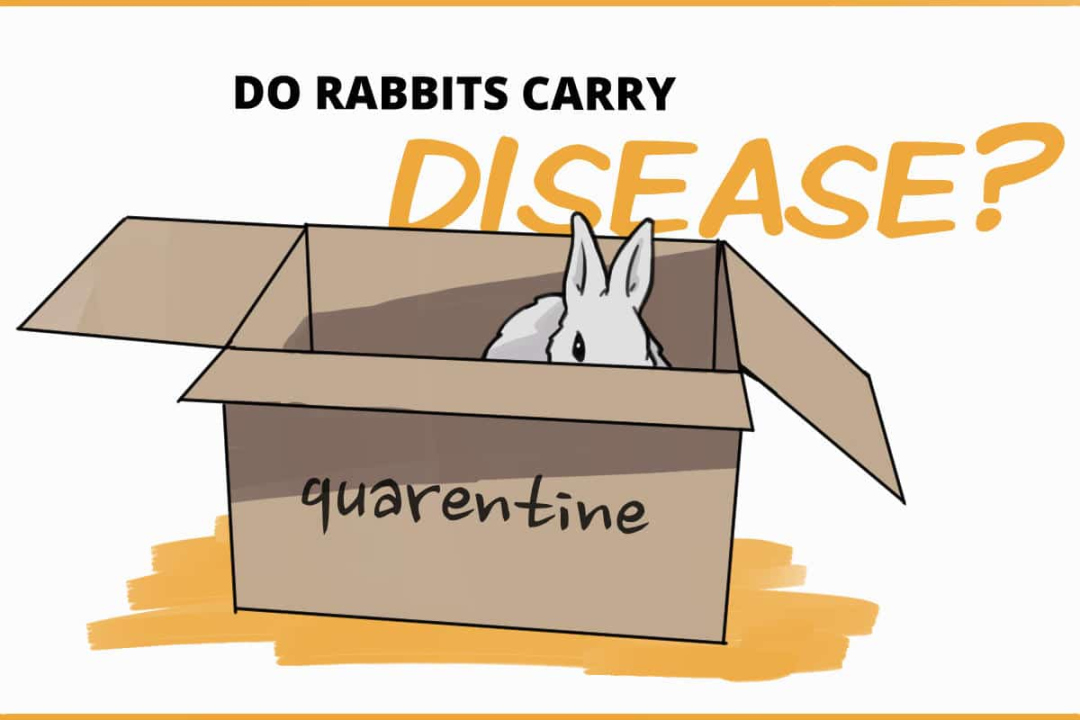What Diseases Do Rabbits Carry?
Rabbits are popular pets known for their adorable appearance and gentle nature. While they can make wonderful companions, it is important to be aware of the potential diseases rabbits can carry. Understanding these diseases can help rabbit owners take appropriate precautions to ensure the health and well-being of their furry friends.

Common Rabbit Diseases
There are several diseases that rabbits are susceptible to. Some of the most common diseases include:
- Myxomatosis: This viral disease affects both domestic and wild rabbits. It is transmitted by biting insects such as fleas or mosquitoes. Symptoms include swelling, discharge from the eyes and nose, and skin lesions.
- Rabbit Viral Hemorrhagic Disease (RVHD): Also known as rabbit calicivirus disease, this highly contagious viral infection affects the liver and other organs. It can be spread through direct contact with infected rabbits, insects, or contaminated objects. Common symptoms include loss of appetite, fever, and sudden death.
- Pasteurellosis: Pasteurellosis is caused by the bacterium Pasteurella multocida. It can be transmitted through direct contact with infected rabbits or through contaminated bedding or food. Symptoms include sneezing, nasal discharge, and abscesses.
- E. cuniculi: E. cuniculi is a microscopic parasite that can infect rabbits and cause neurological problems. It is typically transmitted through contaminated food, water, or urine. Symptoms may include head tilt, loss of balance, and seizures.
- Coccidiosis: Coccidiosis is a parasitic infection caused by the coccidia parasite. It is commonly found in rabbit feces and can be transmitted through ingestion. Symptoms may include diarrhea, weight loss, and dehydration.
Preventing Rabbit Diseases
Prevention is key to keeping rabbits healthy and disease-free. Here are some important preventive measures to consider:
- Vaccination: Consult with a veterinarian to ensure your rabbit receives appropriate vaccinations, such as those for myxomatosis and RVHD.
- Quarantine: When introducing a new rabbit to your home, it is crucial to quarantine them for a period of time to prevent the spread of any potential diseases to existing rabbits.
- Clean Environment: Keep your rabbit’s living area clean and regularly disinfect their cage or enclosure to minimize the risk of bacterial or parasitic infections.
- Proper Nutrition: Provide a balanced diet consisting of fresh hay, vegetables, and a small amount of rabbit pellets to support your rabbit’s immune system.
- Regular Veterinary Check-ups: Schedule routine check-ups with a rabbit-savvy veterinarian to ensure early detection and treatment of any potential health issues.
Frequently Asked Questions (FAQs)
1. Can rabbits transmit diseases to humans?
While some diseases in rabbits can potentially be transmitted to humans, the risk is generally low. However, it is important to practice good hygiene and take necessary precautions to minimize any potential risks.
2. Are there any zoonotic diseases associated with rabbits?
Yes, there are a few zoonotic diseases associated with rabbits, including tularemia and ringworm. These diseases can be transmitted to humans through direct contact with infected rabbits or their contaminated environment.
3. How can I prevent my rabbit from contracting diseases from other animals?
Avoid exposing your rabbit to other animals, especially those of unknown health status. Keep them away from wild rabbits and ensure they do not come into contact with droppings or urine from other animals.
4. Can rabbits be vaccinated against all diseases?
No, currently there are no vaccines available for all diseases that rabbits can contract. However, vaccinations for myxomatosis and RVHD are recommended and widely available to provide protection against these specific diseases.
By staying informed about the potential diseases rabbits can carry and taking necessary preventive measures, you can ensure the health and happiness of your beloved pet.
Related Articles…
Copyright Notice:
This website utilizes images found online, all copyrights are retained by their original owners. If you would like an image removed, kindly contact us.